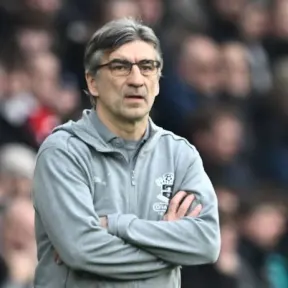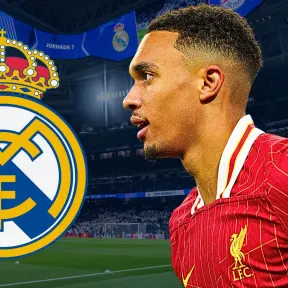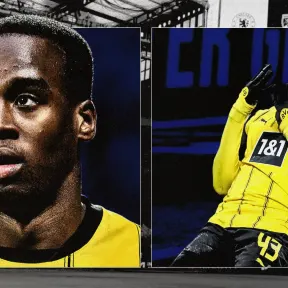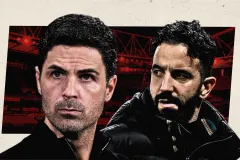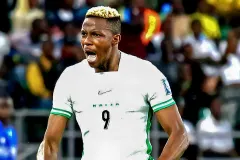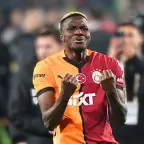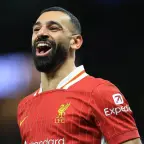Why Martial failed to become a Man Utd superstar
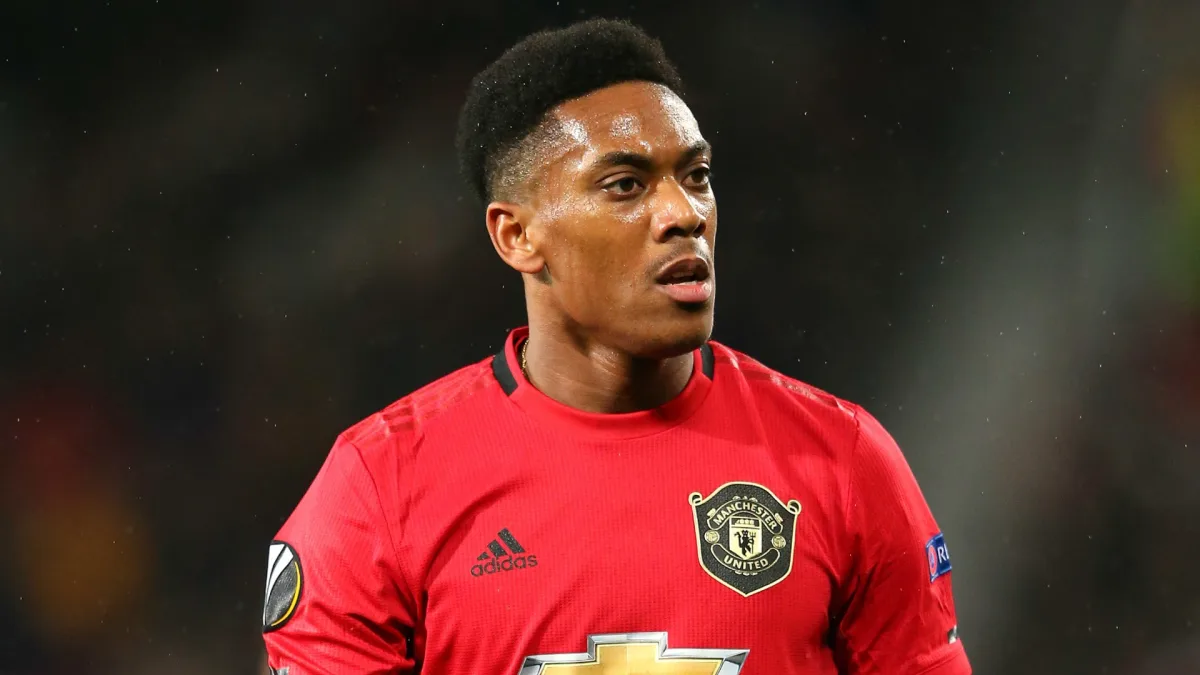
The story of Anthony Martial at Manchester United is one of great potential never realised.
When he arrived from Monaco in 2015, the talk was that the Red Devils were signing a young player with the dynamic style and goal threat of Thierry Henry.
That never came to pass but there have been spells in his United career where it looked like he may be about to blossom into the player that everyone had hoped.
But for a myriad of reasons, it never quite happened and now Martial has told the club he sees his future elsewhere after falling out of favour.
United broke the transfer record for a teenager when they paid £36 million plus a lot of add-ons to bring in Martial, and they were doing so confident that they were signing a talent capable of making the step up.
At that point, Martial was the top teenage scorer in Europe’s top five leagues over the 12 months preceding the transfer and United were particularly excited by his ability to drift into the channels and causes team’s problems in wider areas as well as his goalscoring – hence the Henry comparisons.
A very promising start
The first month was pretty much as good as it got for Martial at United. He began his career in English football with a goal – and against bitter rivals Liverpool no-less.
After coming on as a substitute with just under half-an-hour to play the then-teenager struck the goal which sealed a 3–1 win for Louis van Gaal’s side.
The Dutch boss called it a “marvellous goal” and he followed that up by scoring twice to help United to victory in his first Premier League start, a 3–2 triumph at Southampton and scored again against Ipswich Town in the League Cup after coming on as a sub to cap off a magnificent first month with United.
He was subsequently named Premier League Player of the Month and at that point, the sky seemed to be the limit for the young Frenchman, who even earned praise from Sir Alex Ferguson for his early impact with the club.
Martial cooled off from there though, struggling for consistency at times in the following months and United’s title aspirations were derailed with three consecutive defeats (the Frenchman played in all of them) in December to Bournemouth, Norwich and Stoke.
Overall, though, his first campaign could be viewed as a success as he finished with 42 appearances (the vast majority of them playing a full 90 minutes), 15 goals and nine assists in all competitions. Martial also topped off the season with a winners’ medal in the FA Cup following a 2-1 win over Crystal Palace after extra time at Wembley.
The impact of Mourinho
Van Gaal was replaced by Jose Mourinho in the summer following Martial’s first season and that’s where things began to go wrong for the Frenchman.
The emergence of Marcus Rashford in the latter stages of the previous campaign as well as the summer acquisition of Zlatan Ibrahimovic increased competition for places at Old Trafford.
Martial had found success both up front and playing off the wing in his first season but Mourinho played him out wide almost exclusively, despite having reservations about his ability to track back.
Overall, Martial’s productivity decreased significantly in the second season as he managed to find the net just eight times and the following summer Manchester United signed Romelu Lukaku as well as re-signing Ibrahimovic, so opportunities for Martial to play in his preferred role as a striker were extremely limited.
Despite that – and the arrival of Alexis Sanchez in January to increase competition in the wider areas – Martial managed to hit double figures again in his third season.
There is no doubt, however, that his confidence took a hit under Mourinho and the side’s more conservative playing style also hindered his ability to make an impact.
Second wind under Solskjear
Mourinho eventually made way for Ole Gunnar Solskjaer and in the Norwegian’s first full season in charge, the 2019-20 campaign, he reverted to playing Martial as an out-and-out striker.
It worked a treat as the player enjoyed the best goalscoring season of his career with 17 Premier League goals in 32 games and also United's Players' Player of the Year award.
Overall, he hit 23 in all competitions and it finally looked like he was about to become the player than he had threatened to become in his first month at the club.
An inevitable parting of the ways
Even with Ole at the wheel, though, Martial could not ultimately alter the trajectory of his sputtering Old Trafford career.
A familiar theme prevailed though and that was that United, other than van Gaal in the first season, never truly entrusted Martial with the keys.
As well as Ibrahimovic, Sanchez and Lukaku before them the likes of Bruno Fernandes, Edison Cavani, Jadon Sancho and, of course, Cristiano Ronaldo all arrived in Manchester to signify that the club never fully believed in Martial as a primary attacking weapon.
That doesn’t exonerate the player himself from blame though, and even Solskjear wanted rid of him prior to his sacking, according to a recent report.
The Athletic reports that Solskjaer was disappointed by the massive regression he saw from Martial last season after he was full of goals the season before.
It’s claimed the Norwegian believed wanted to see United get rid of Martial and his £250,000-per-week wages to invest in other areas of the squad.
Ultimately, Solskjaer left the club due to poor performance and Martial has barely got a look-in under interim manager Ralf Rangnick.
The pair even fell-out when Rangnick claimed that Martial refused to play against Aston Villa, a claim that the player angrily denied.
Now Martial is heading on loan to Sevilla until the end of the season.
A fresh start (even for an initial six months) for Martial will at least give him a chance of fulfilling the potential he showed as a teenager – but it will be on him to make sure he does so.

